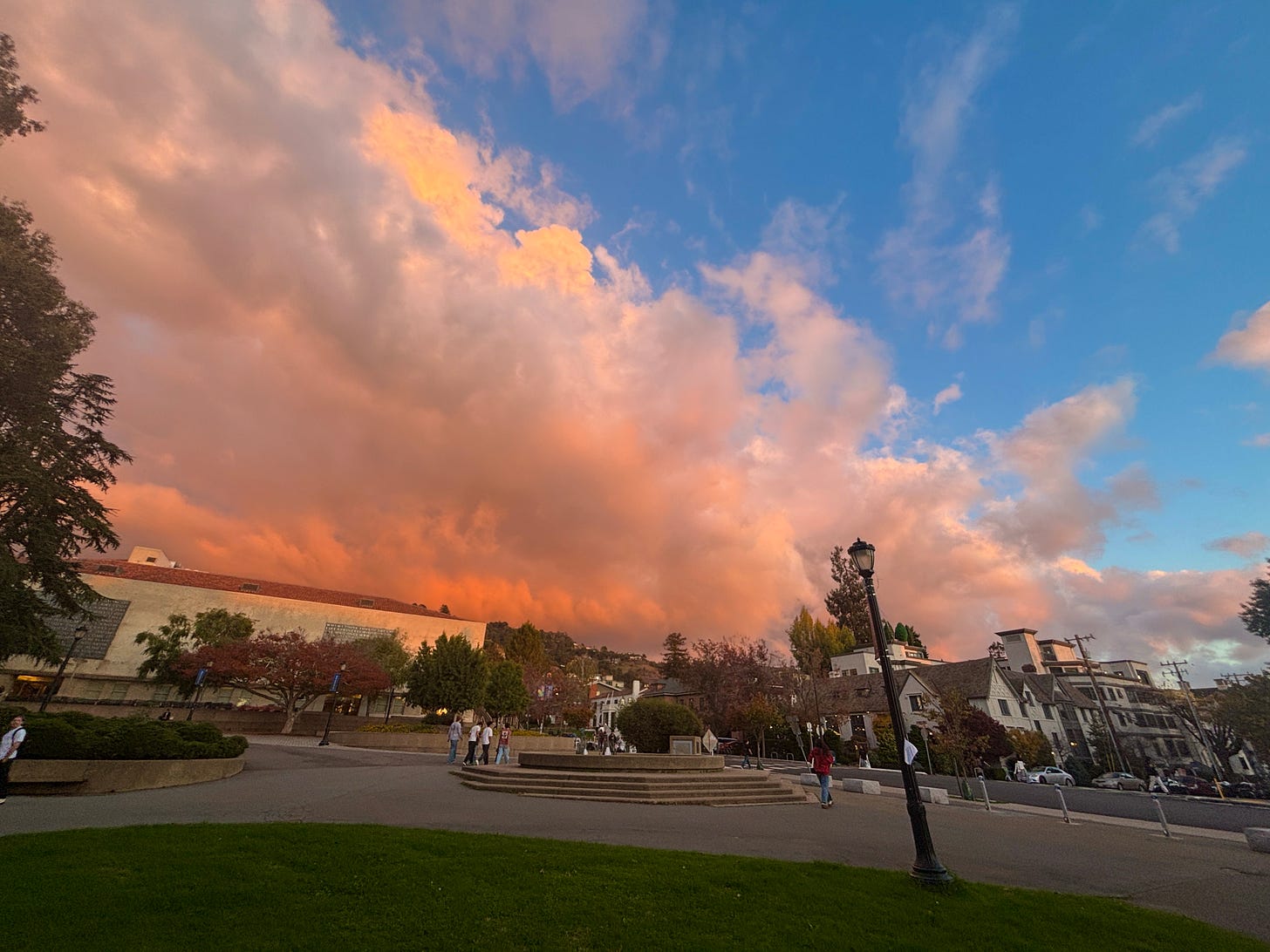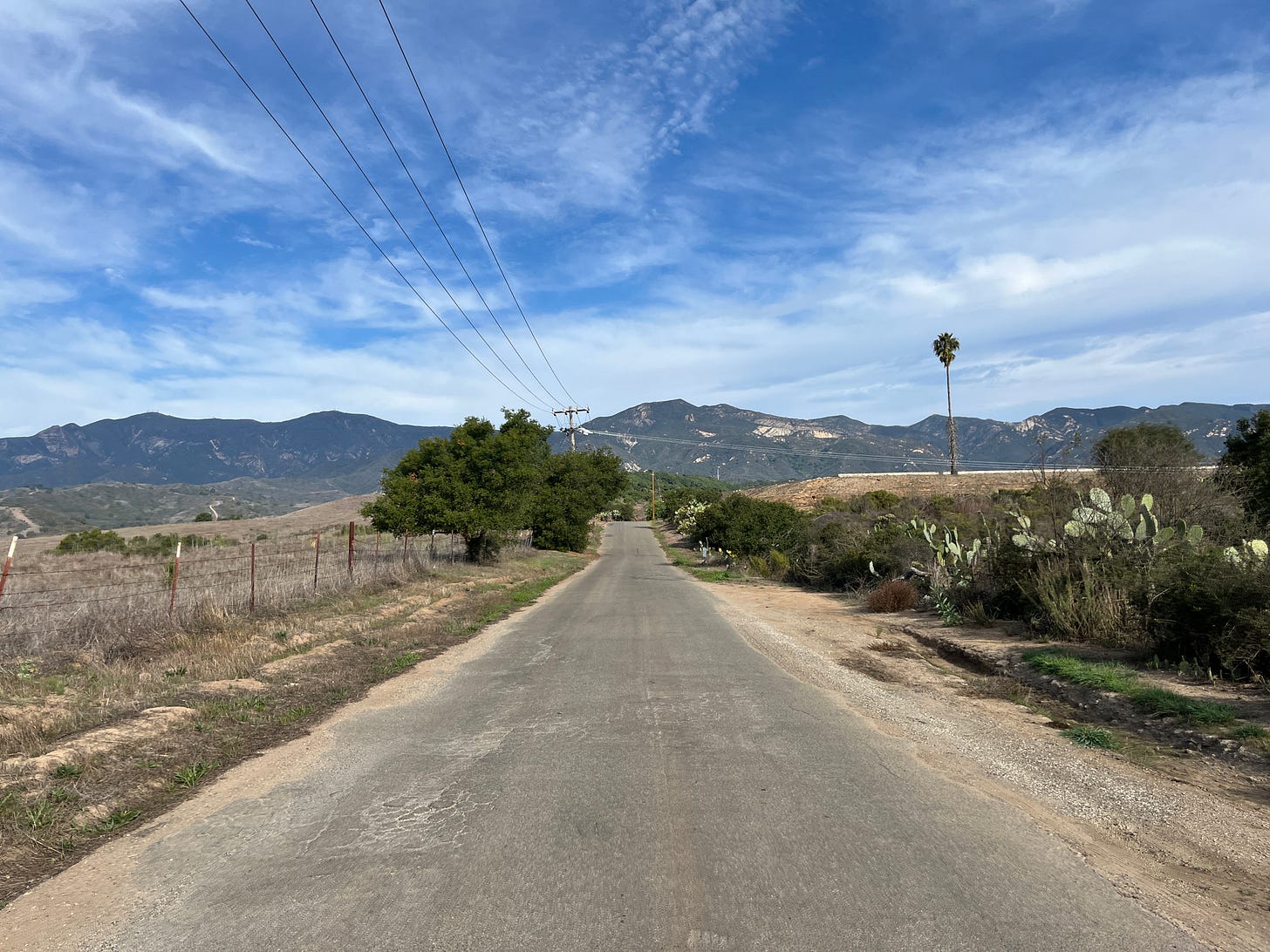Reading List
Jeremi learns about system design; Luca uses some extra time
Welcome back to Jeremi and Luca’s Newsletter, an update every Sunday from two friends connected by a relentless desire to learn and grow. Here’s a closer look at what we’re reading, working on, or thinking about.
Luca: You tell me
These next few weeks are an odd time in the semester: the bulk of midterm season has passed and now there’s a sort of laggard period (that includes a week off for Thanksgiving) before final exams in December.
But there’s actually a lot of utility to this time… the goal before Thanksgiving is to finish all assignments and class projects for the year, write the final papers for my essay-based classes, and get anything else off my plate to make preparation for exams as straight forward and uninterrupted as possible.
Plus, the extra time is allowing me to read more and plan for next semester. I’ve finally gotten to Born to Run—a gift from Jeremi—as well as Andrew Ross Sorkin’s new book on the 1929 financial crisis.
Jeremi just send me a podcast last week about the importance of downtime, and reading long-form books seems to always force a positive change of pace. And anyway, I originally wanted to read 52 books this year, but I’m only at 32 right now…
If you have any recommendations, please share! Already on my list from you all include A More Beautiful Question (Mark), The Checklist Manifesto (Burdick), Dune and Ender’s Game (Andy), and The Way of Kings (Kritin).
And then lastly, this slower period has offered a good chance to pick people’s brains about the war studies program at King’s College London, which I’ll be doing for my study abroad next semester.
A surprising number of students and faculty in the public policy / national security scene here at Cal have taught or studied in the same program, so there’s a lot of knowledge to draw out… how to find the lesser-known events, the right people, etc.
Anyway, about a month left of school, then lots of time to read, see friends and family, ski, and figure out how to make the most of my time in London.
Jeremi: On system design
I spent the last week reading a book for an interview.
It’s a system design interview, one of the hallmark interviews in the software engineer hiring process. The questions are akin to: “build a software system for a non-profit which helps distribute puppies to combat loneliness in cities.”
A place where I have practically no experience. I’ve never built an actual system to support actual users, and so a lot of these types of problems, I’m not sure how to approach. As my friend put it:
This is the design aspect of real world software engineering [a job] instead of computer science [a field of study in school]
So I read a book on system design.
I surprised myself by how much I enjoyed it and found the book informative. The first chapter was titled “how to scale from one user to millions of users.” That’s an interesting problem: take a goal like “helping non-profits distribute puppies” and translate it into a software system that is consistent, fast, and reliable.
I learned more about load-balancing, data sharding, consistent hashing, CDNs, and the general workflow to build a scaled software system. I can see how this phase of a startup (already found product-market fit, now scaling) consists of exciting and meaningful work. Software Engineering is pretty cool.
I’m not saying I would like to pursue an entire career as a software engineer, but I do want to pick up these skills. I’m grateful for the interview as a forcing function of that. It makes me excited for possible internships where I can have hands-on experience doing these things.
In my mind, I’m building the skills that help push me towards some fuzzy goal, but I don’t know what that goal looks like. I’m trying to become a better researcher, and a better engineer, and pick up knowledge that I’m curious about. I think these things will help me in my life’s work, even if I’m not sure what that work will be.




